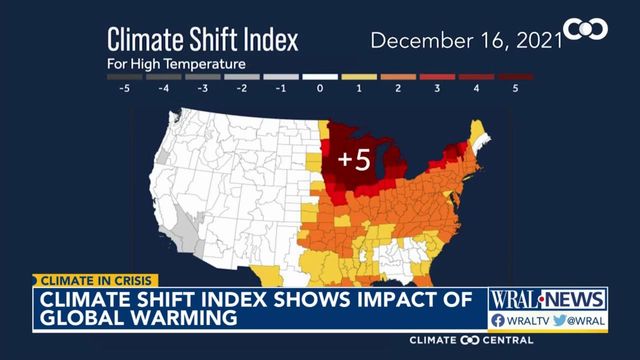The United Nations climate change summit continues in Egypt, where delegates from nearly 200 countries are discussing the future of the planet.
Ahead of the big global event, Climate Central released a new report and map tool showing the impact of climate change on the temperatures we experience each day – including areas hardest hit by global warming.
Human activity has increased the global average temperature by more than 2 degrees Fahrenheit over the last century – a figure that can seem abstract. Instead, Climate Central came up with the “climate shift index” to quantify the fingerprint of global warming locally and in real-time.
"Every day, everywhere in the world, we're able to put a score on the temperature that tells you how strong the influence of climate change is on that day's temperature," said Andrew Pershing with Climate Central.
Climate Central develops the score using a model to show how much global warming influenced that day’s weather. The strength of this connection is given a number and a color – a score of 5 means climate change made those conditions five times more likely.
The United States is more neutral now during the fall, but there are still a number of zones in the red.
"Some days, we get these weather conditions that are extraordinary, where you really can say that those conditions were made much more likely due to the extra carbon pollution in the atmosphere," said Pershing.
Climate Central released a report analyzing the climate shift index data for more than 1000 cities over a year-long period and found human-driven climate change affected temperatures experienced by nearly every person on the planet – more than 96% of the global population.
Hotspots of impact were found closest to the equator.
"It's showing you the kinds of conditions that are becoming more common, and they're going to become more common that we need to prepare for," said Pershing.
Several European countries have pledged financial support to help the most-impacted nations recover from loss and damage caused by climate change.
The United State, the world’s richest nation and one of the largest emitters of greenhouse gases, has not agreed to a new fund.





